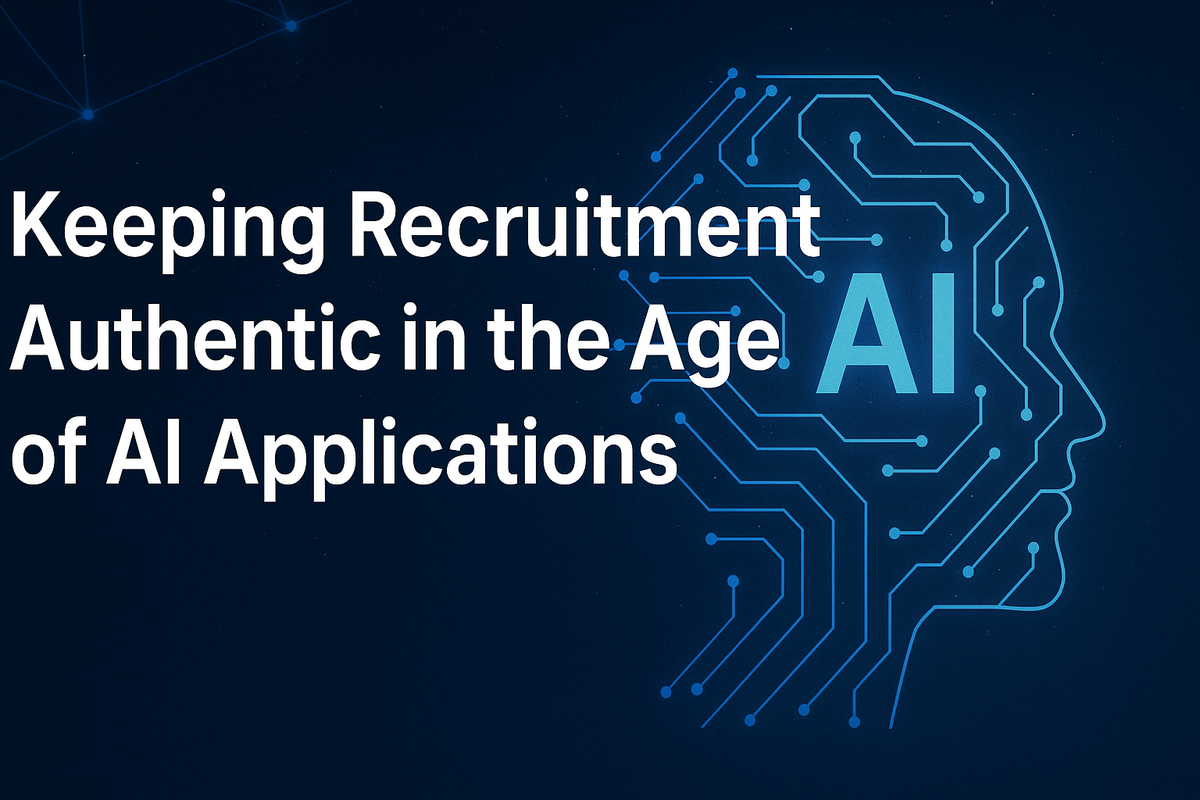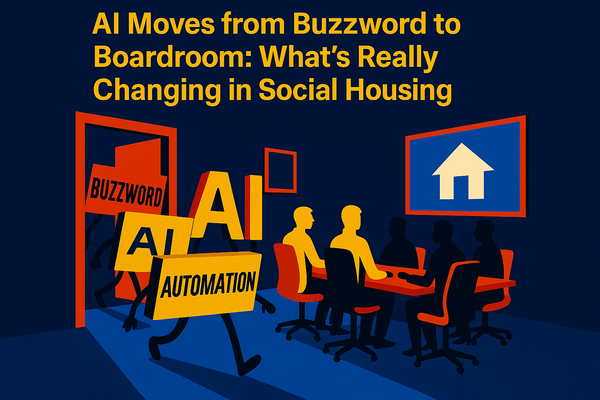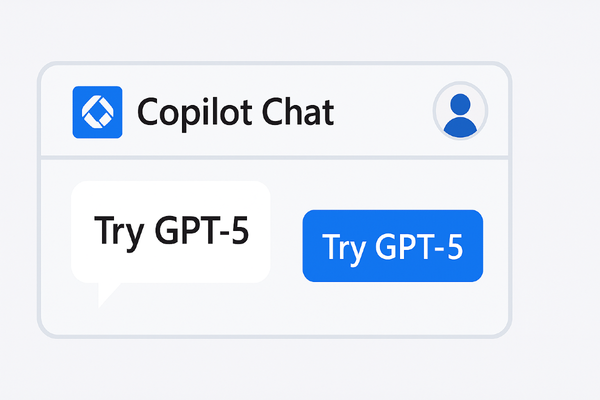Keeping Recruitment Authentic in the Age of AI Applications

AI is reshaping the way people apply for jobs. In 2025, evidence shows a sharp increase in candidates using AI tools to craft their CVs and applications. On paper, many look flawless. Yet recruiters across the social housing sector are telling us a different story.
“We’re seeing candidates with perfect CVs, but the cracks show at interview.”
(Feedback from a sector Executive Director, September 2025)
This isn’t an isolated observation. It’s becoming common. The real question is: how do we protect the authenticity of recruitment in social housing and avoid wasting time and money on candidates who only look good on paper?
The Rise of AI-Assisted Applications
Recent studies confirm the trend:
- Up to 65% of candidates have used AI in their job search
- Around 31%–43% have used AI to create CVs and cover letters
- Use of AI is growing across all age groups, not just tech-savvy graduates
- “Robotic” or “overly perfect” CVs are increasingly spotted by recruiters, only to unravel at interview
The concern is the CV- interview gap. Candidates can present as highly capable on paper, but when questioned, lack depth, practical knowledge, or sector awareness.
More Than Just CV Polishing
Many assume AI’s role stops at rewriting CVs. In reality, the tools are far more sophisticated now, and will only get sharper.
Advanced agentic AI models can be instructed to behave as an experienced Head of Repairs in a large housing association. Given that prompt, the AI will generate detailed, confident answers to sector-specific questions in the tone of a seasoned professional.
That means even structured application forms or online tests, once seen as reliable filters, are no longer safe. A sharp candidate can run the test through an AI agent and return a credible response in seconds.
This demands a new level of rigour.
The Hidden Cost of Recruitment
While published data on tenure in senior social housing roles is patchy, it’s reasonable to assume a Head of Service or Head of Repairs will stay in post for 4-5 years.
With a base salary of around £90,000, the true cost to an employer (once pension, NI, training, and overheads are included) easily reaches £120,000–£130,000 a year. Over five years that represents a cost of £600,000–£650,000 invested in one individual.
That’s before adding the hidden costs of recruitment campaigns, onboarding, disruption, and the risks of appointing the wrong person.
When seen in this light, the importance of getting recruitment right in the age of AI fakery becomes impossible to ignore.
Five Ways to Keep Recruitment Authentic
1. Rethink Applications
Move away from generic CVs. Ask role-specific questions that demand lived experience.
- “What KPIs would you use to measure a repairs team?”
- “Tell us about a time you balanced tenant safety with cost control.”
2. Use Screening Tests With Real-World Challenges
- Avoid neat, textbook scenarios.
- Provide messy data sets from a repairs dashboard and ask for priorities
- Run short, time-bound simulations: “Three operatives off sick, 40 jobs overdue, and a burst pipe—what do you do first?”
3. Bring Practical Tasks Into Interviews
Go beyond Q&A.
- Analyse a repairs schedule and highlight risks
- Role play with a frustrated tenant
- Allocate a mini repairs budget and justify spend
4. Probe for Lived Detail
AI struggles with specifics.
- “Which scheduling system did you last use, and what frustrated you?”
- “Which SOR codes cause the biggest problems?”
- “How many operatives were in your team, and what was their average jobs per day?”
5. Build Fairness Into the Process
Make it clear that authenticity matters more than polished wording. Candidates can use AI responsibly for grammar or formatting, but sector knowledge, behaviour, and decision-making will be tested.
Protecting Authentic Talent
The aim is not to trap candidates but to protect the sector’s ability to recruit capable people. These approaches ensure:
- Only those with genuine sector knowledge make it through
- Organisations don’t waste resources on unsuitable recruits
- Residents and communities benefit from staff they can rely on
- Candidates who use AI responsibly aren’t unfairly penalised
Final Thought
Recruiting senior staff in social housing is a costly decision. Over a 4-5 year tenure, a Head of Service post can represent more than half a million pounds in cost. In an era where AI can mimic even the tone of an experienced housing leader, the sector can no longer rely on traditional recruitment filters.
By redesigning recruitment processes now, using messy data, pressured scenarios, and lived-detail questions, housing organisations can expose the fakesters, protect the authentic, and keep recruitment true to its purpose: finding people who can genuinely serve residents, keep homes safe, and deliver on the sector’s responsibilities.


